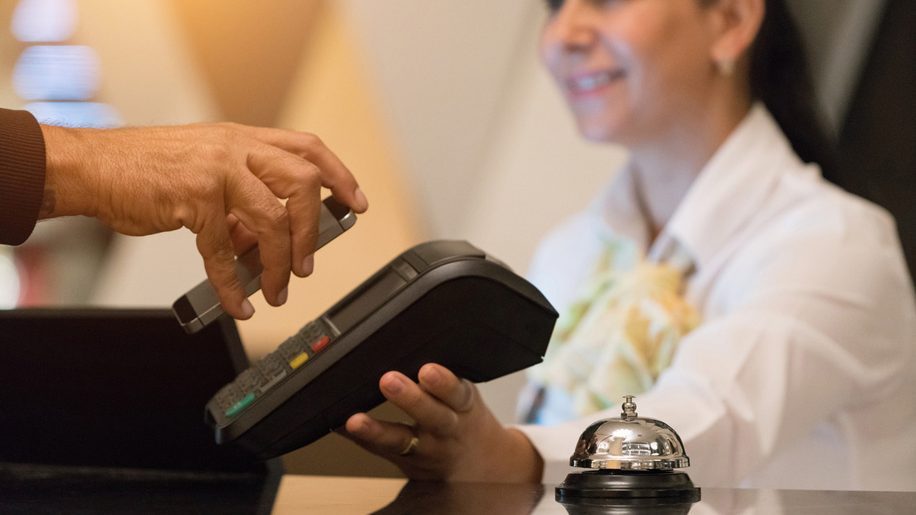
As guests expect more for free, hoteliers are having to become increasingly inventive with in-room charges to fill the hole, says Derek Picot.
Times are challenging for hoteliers. International business travellers are pushing for more and more benefits from their room rate, while sources of profit disappear for the hoteliers. First it was mobile phones decimating the hotel’s telephone revenues. Then its replacement – charging for the internet – became more difficult as travellers demanded it for free. To put all this in perspective, 20 years ago, a 200-bedroom hotel might comfortably make as much as 8 per cent of its total profit from in-room services. Now they face a hole that has to be covered from other sources.
Cunning hoteliers who specialise in the dark art of making money from technology and in-room refrigeration were thrown a challenge. It took a little thought, but there was a breakthrough.
INTERNET CHARGES
The first was to introduce two internet speeds. Slow speed for free, faster charged at a premium. This, of course, came about because of the realisation that 60 per cent of all downloads were not for email traffic but for movie sites, which incidentally means no one is paying for the in-room films anymore.
A little while back I had to provide an analysis for a hotel chain to determine the degree that free internet usage was influencing the decline of pay-for movie income. The client wanted to know how much revenue could be compensated by offering chargeable high-speed broadband. Most hotels have their in-room systems provided free of charge against commission on pay movie income. The client’s concern was, if this dropped too far, they would be expected to pay for the equipment – a hefty charge if you think about all those rooms requiring flatscreen televisions and connections. The analysis showed there was a distinct decline in people watching the movies, though pay-per-view adult movie revenues were still strong at weekends with leisure guests. My research revealed that there were also certain nationality trends, and demonstrated that while the British may follow the general purchasing trend, if there was a Premier League football match on, their preference was to watch it rather than seek other entertainment.
In search of other ways to reverse the revenue decline from television and communication services, the focus has returned to the minibar. As a general rule, greater temperance in corporate life means minibar use is also declining – it is a “break even” operation at best. The cost of having a staff member check rooms and replace glasses every day absorbs potential profit.
Readers will have encountered automated bar systems to help inventory control. These allow automatic billing and also tell staff which rooms need re-stocking and when. It doesn’t really save the staff cost, though. Guests use the bar for the “wrong” reasons – to store medicine, cheese, milk and a menagerie of personal items. Inevitably, these get left behind to the horror of the next arrival, who generally takes a dislike to syringes and curdled dairy products. On top of that there appears to be a breed of guest that takes simple pleasure in drinking the minibar contents and then refilling the bottles with various similar-coloured liquids (don’t ask). The result is that each bar still has to be checked daily. The key to financial success for the savvy hotelier is to persuade the customer to steal less and spend more.
Recently, I stayed in a hotel in the States where, for a premium, the minibar was included. I was disappointed to find that it was only stocked with soft drinks and a couple of beers. The concept had one advantage; it was serviced when the room was cleaned and saved me from the daily visit of an attendant to check the bar. However, my feeling of benevolence was diminished by irritation at having to order my nightcap from room service. The time taken for delivery, the tip, tax and charge cost me both angst and cash. But money was being made.
Now we’ve seen the rise of the honesty bar. In upscale rooms, you can drink as much as you like from bottles in your room with the cost assessed at the end of the stay. It seems to work, but it doesn’t come close to recovering what has been lost in profit from the days of outrageous telephone charges and overpriced mini cans of coke.
I predict there will be some new ideas. The note encouraging you to “Save the Planet”, for instance. Rather than requesting you reuse towels, it will ask that you use them sparingly or not at all. Perhaps they will offer a discount if you bring a sleeping bag. And as for the air-conditioning, now there’s an opportunity.
Derek Picot has been a hotelier for more than 30 years, and is author of Hotel Reservations.












